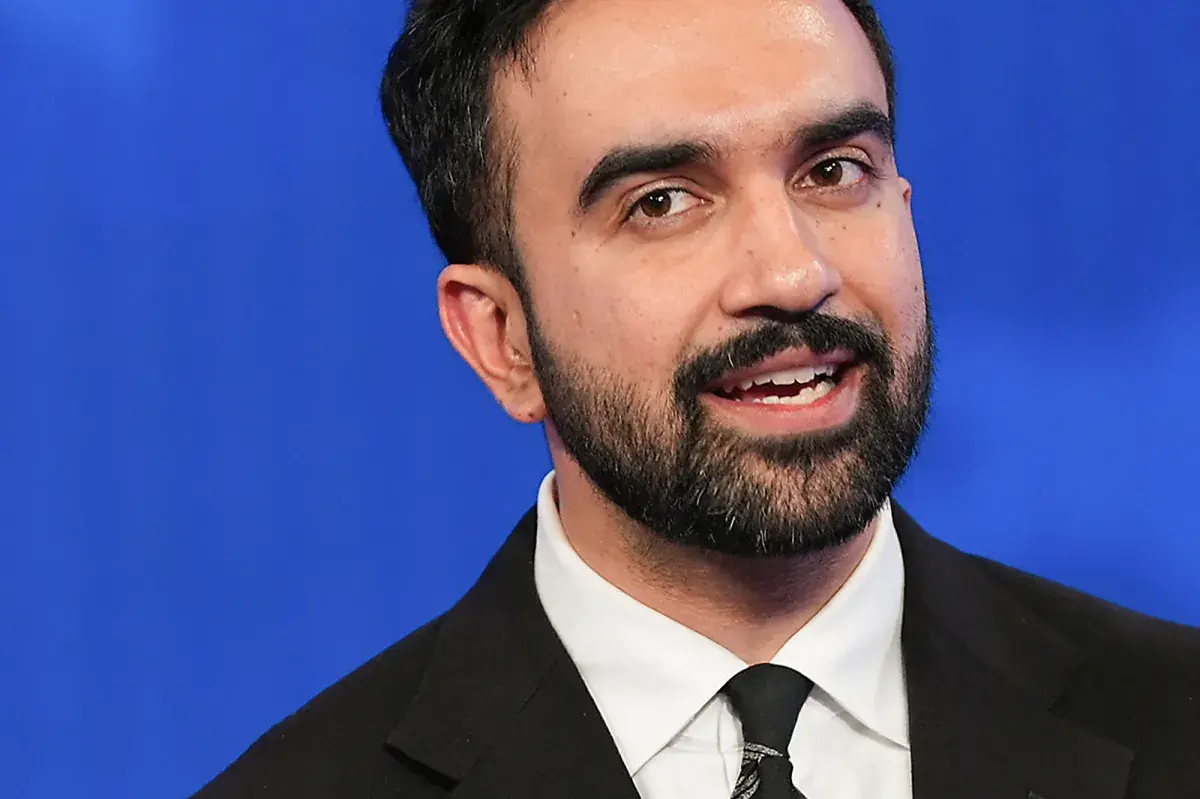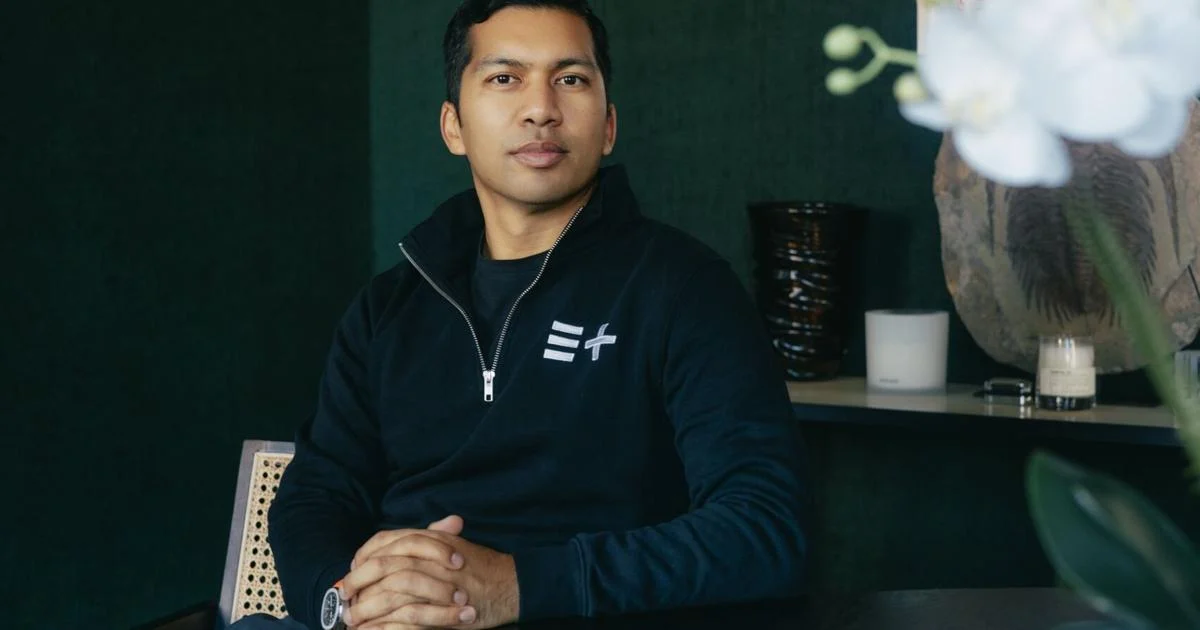Copyright Newsweek

Zohran Mamdani wants to drastically overhaul daily life for millions of New Yorkers, but won’t be able to deliver on most campaign promises without extensive cooperation from other lawmakers and entities, one political analyst told Newsweek. The 34-year-old state assemblyman, whose chances of becoming New York City’s next mayor recently peaked at 93 percent on one betting site, has cultivated support among progressives and other left-leaning voters with pledges to lower the cost of living for residents while making city existence “easier,” according to his website. If elected on November 4, the Democratic socialist is vowing to “immediately freeze” rent for more than 2 million residents, make buses free citywide, provide universal child care, launch city-owned grocery stores and raise the corporate tax rate while implementing a new 2 percent surcharge on New Yorkers making more than $1 million annually. But Mamdani’s substantial campaign promises would require significant outside help to ultimately come to fruition, including cooperation from state legislators and Governor Kathy Hochul, who has vowed not to hike taxes on wealthy New Yorkers. “The short answer is no—he cannot make any of these moves unilaterally,” said Nicole Gelinas, a senior fellow at the Manhattan Institute, a New York-based think tank. “To freeze the rent, he needs the vote of an appointed board whose members, by state law, must consider a host of objective factors. To make the buses free, he'd need the assent of the state-run Metropolitan Transportation Authority, so, in practice, he'd need the governor to agree. Mamdani would also need the MTA’s private-sector bondholders to agree since the agency has pledged future fares, including from buses, to bondholders, Gelinas said. “To hike either tax, he'd need authorization from the state legislature as well as the governor,” Gelinas continued. “He could theoretically provide universal childcare himself, with only the cooperation of the city council, if he could find money in the budget for it rather than rely on tax increases.” Much of Mamdani’s platform, which is outlined on his website, relies on approval from either the governor or state legislators—or both, Gelinas noted. “But that doesn’t mean he can’t do a lot of damage by himself, particularly on policing,” she said. The front-runner to become New York’s next mayor who has previously sought to defund the NYPD would also spend $1.1 billion to create a Department of Community Safety. Mamdani has laid out his vision in a 17-page plan, detailing how social workers would respond instead of NYPD officers in some instances, but the shift would actually “require more policing,” Gelinas previously noted. “Both the MTA-led and city-led teams of mental-health professionals, who initiate subway encounters with people in mental distress, depend on cops,” Gelinas wrote in the autumn 2025 issue of City Journal, a public policy magazine published by the Manhattan Institute. Those officers don’t typically have to interact directly with people having mental health crises, but they do need to be on scenes due to potential threats, Gelinas said. Expanded deployment of so-called “violence disrupters” would replace some of the duties now performed by police under Mamdani’s proposal, but his plan cites “Charlotte, MD,” rather than the North Carolina city, as well as Chicago and Baltimore as — cities with “per-capita murder rates several times” higher than New York, Gelinas noted. “Mamdani thus wants New York to abandon what we know works — consistent policing and prosecution — to try something deployed as a last resort by cities that, suffering from impossible local politics or scarce resources, have given up on the obvious,” she wrote in City Journal. While Mamdani might not have final authority to deliver his promises independently, especially regarding taxes, he will have strong momentum if victorious next month, other political analysts told Newsweek. “The governor has come out in favor of the most expensive of Mamdani’s proposals, which is the universal child care initiative,” said Laura Tamman, clinical assistant professor of political science at Pace University. “That’s the one that has the biggest price tag and she has said that they’re in agreement on funding that.” Hochul said she backed Mamdani's child care pledge, which would cost an estimated $6 billion annually, during a joint appearance in the Queens district he represents, The City reported last week. "That is still a fight that my children are facing today, young families are facing today,” Hochul reportedly said. "I’ve had conversations with Assemblymember Mamdani about how we can get to universal childcare. I believe we can. I believe that." Mamdani has garnered such wide support throughout the city that he’s incentivized state leaders to work directly with him, Tamman said. “While yes, he technically can’t do these things independently, he has shown that he’s able to build the political will to do so,” she told Newsweek. “And even before this campaign, he partnered with state Senator Michael Gianaris where they instituted a pilot project of the free bus initiative that was very successful.” Tamman said she was impressed by the “broad support” Mamdani currently enjoys, including Hochul telling reporters last week that she’s had positive discussions with him about how to implement the plan without providing specific details. “I see a realistic path to all of his proposals becoming a reality,” Tamman said. “Like I said, he’s already got the governor on record before Election Day saying that she’ll make this one a reality.” The cost of providing free buses is also significant but “not impossible” to overcome and taking steps to freeze the rent as mayor through appointments to the guidelines board has been done by previous administrations, including former Mayor Bill de Blasio, Tamman said. “I actually think the opposite is true, that people are painting his proposals as wildly unrealistic and that is not how I view them,” she said. “I think they’re very likely happen.” A poll released Monday found Mamdani with 43.2 percent of likely voters, followed by former Governor Andrew Cuomo, an independent, at 28.9 percent and Guardian Angels founder Curtis Sliwa, a Republican, at 19.4 percent. Nearly 9 percent of voters said they were undecided or prefer another candidate, according to the AARP New York and Gotham Polling & Analytics survey. If Sliwa drops out of the race as some are urging, including billionaire investor Bill Ackman, Mamdani’s lead over Cuomo falls within the margin of error of 4 percent. “Look, even my 12-year-old daughters can list off the promises that Mamdani has made,” Tamman said, referring to rent freezes, universal child care and free buses. “He garnered such wide support in the primary and is expected to get such wide support on Election Day that that mandate is going to turn onto the state legislature as well to deliver on those three promises.” Tamman said next month's election promises to have a lasting impact, regardless of outcome. "It's really an important moment for democracy," she said. "I was telling a friend abroad that voters really need to see that somebody runs on a platform and then that platform happens."



